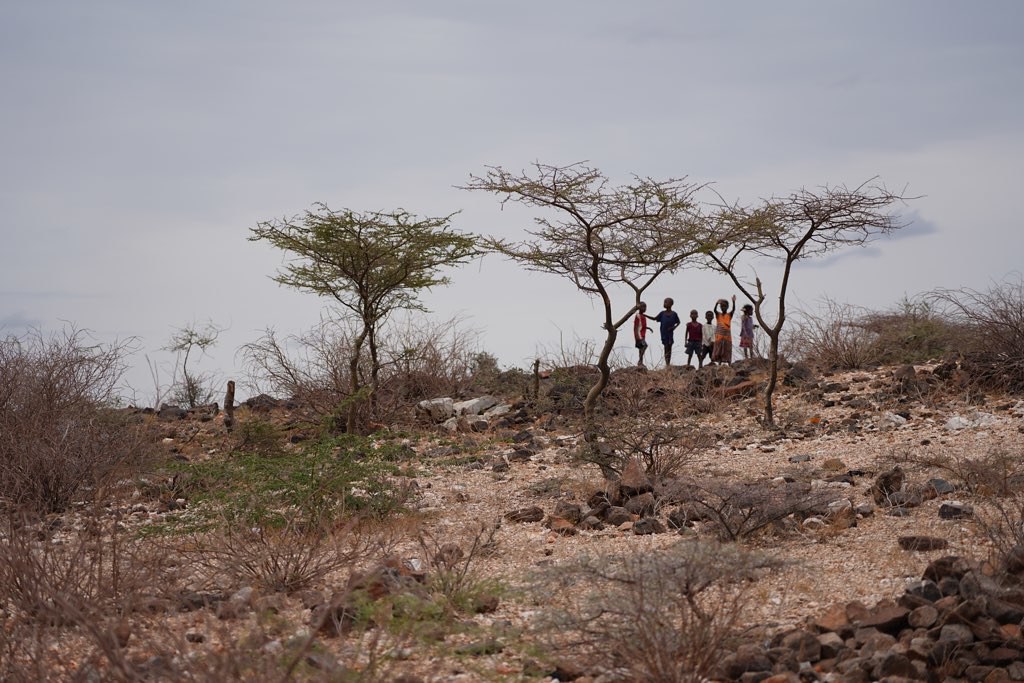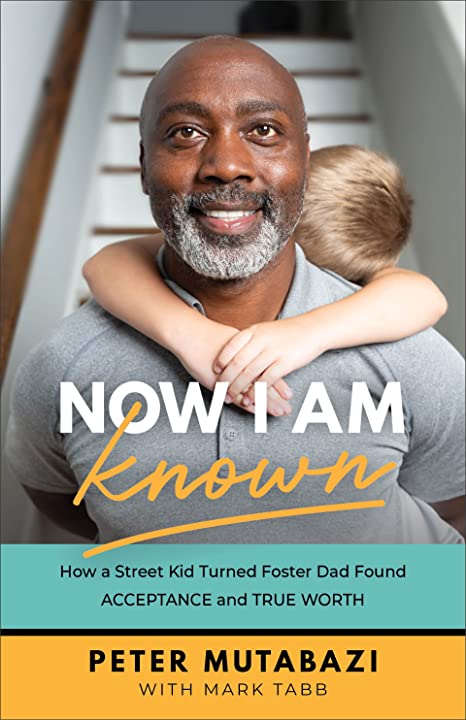Peter Mutabazi has a story worth hearing. From his childhood as a street kid in Kampala, Uganda, to his years as a foster and adoptive dad in the United States, Peter’s life is filled with God’s grace and mercy, love and empowerment, and hope in the face of hardship. In this post, Peter reveals the difficulty he had forgiving his abusive and angry father and the lessons he learned in the killing fields of the Rwandan genocide. It’s a grace to welcome Peter to the farm’s table today…
After five days of delivering relief supplies to children’s refugee camps, we finally started back north to Uganda. I still held my breath, wondering if a militia group had a roadblock up ahead where they’d drag us out of the trucks, hack us to death, and take our vehicles.
Thankfully, we never encountered any problems. We drove back over the roads we came in on. We saw more mass graves, more closed-up churches, more living zombies slowly walking along the roads, but at least we were headed home where we could leave these horrors behind us. I don’t think I fully relaxed until we finally crossed into Uganda.
I had a lot of time to think during the drive home. My mind kept running back to the same questions that had hit me soon after we had arrived: How different was I from the people who had carried out this genocide? They were motivated by hate. They felt justified in carrying out acts that defy description. If given the chance, would I do the same to my own father?







I had to admit there were times in my life when the answer was yes. I wanted to see him die. I wanted him to suffer as deeply as he made me suffer.
That’s when it hit me. I told myself that I had overcome my past. After all, I had finished high school and had been accepted by Makerere University. I had hopes and dreams for my future. I had already achieved more than anyone in my family, much more.
Why? I asked myself. What really motivated me?
Was it to reach my dreams, or was it to crush my father?
My father had told me I would never amount to anything. I wanted to prove him wrong. But then what?
Forgiveness not only set me free from my past but also took away my fear for the future.
I realized that my hatred for my father and my desire to rub my success in his face only showed how strong my past still had ahold of me. I thought I had moved past who I had once been, but now I realized that it was like I had never left my father’s house. I had not grown.
My father still had as much control over me as he did when I was a little boy. Hating my father motivated me and defined me. I really did not know who I was apart from it.
Five days in the hell that was post-genocide Rwanda made me realize I had hated long enough. I had to be free of the bitterness before it consumed me, as it had consumed Rwanda’s countryside. Perhaps I would never lash out toward my father like one tribe had lashed out against the other in Rwanda, but as long as I held on to my hate and refused to forgive, I was no more alive than the people I saw staggering down the roads or standing next to the mass graves.
During this trip to Rwanda, I realized that forgiveness was what I finally had to experience with my father. The whole idea of forgiveness means releasing another from their debt. With God’s help, I turned loose the debt of pain my father owned me.
This marked the beginning of my life of faith, and through the lens of faith, I finally saw my father for who he was: a lost man in need of hope, just like I had been.







That’s what hate does: it keeps us locked, stuck, and prevents us from the growth we are meant for. But forgiveness can set us free.
Not growing up with a loving father impacts me every day, and it can trigger sadness or motivate me toward goodness. But my hope gave way to understanding and forgiveness toward my father.
He did not have to change to earn my forgiveness. Instead, I saw that he was who he was. He remained the angry, mean, argumentative person he had always been, but I knew I could not do anything to change that. I simply had to accept him for who he was. Once I saw him in this way, I discovered his words could no longer exact an emotional toll from me.
Forgiveness not only set me free from my past but also took away my fear for the future. I could now embrace my past and use it to make a difference in the lives of children.
In the years since my first trip into Rwanda, I have traveled all over the world. I have seen firsthand the destructive power of hate, but I have also seen the healing power of generosity, acceptance, and love. The latter is our only hope.
We all have the opportunity to help others, inspire others, and love others from a sincere heart.
We all have the opportunity to help others, inspire others, and love others from a sincere heart. I’ve worked hundreds of hours to help impoverished children move into opportunity. My passion for giving kids a chance to be known, be heard, and be seen goes beyond any other dream I’ve ever had. And spreading that message to adults is equally necessary.
I know firsthand that if you don’t deal with the hate you experienced as a child, it will continue to influence your future well into adulthood. That’s what hate does: it keeps us locked, stuck, and prevents us from the growth we are meant for. But forgiveness can set us free.
Adapted from Now I Am Known by Peter Mutabazi

Peter Mutabazi is an international advocate for children and the founder of Now I Am Known, an organization that supplies resources to encourage and support vulnerable children and teens. He is a single father of one adopted son and a foster dad to many, a former street kid who grew up to work for World Vision and Compassion International. Peter’s passion for helping kids is spurred on by the life of Joseph, specifically Joseph’s words to his brothers found in Genesis 50:19-20, “Don’t be afraid. Am I in the place of God? You intended to harm me, but God intended it for good to accomplish what is now being done, the saving of many lives.”
Now I Am Known: How a Street Kid Turned Foster Dad Found Acceptance and Truth Worth chronicles his childhood of abuse and living on the streets of Uganda. Peter’s words will inspire and empower readers to find hope in the midst of hardship and live out the call God places on all of us.
[Our humble thanks to Baker Books for their partnership in today’s devotional. ]







